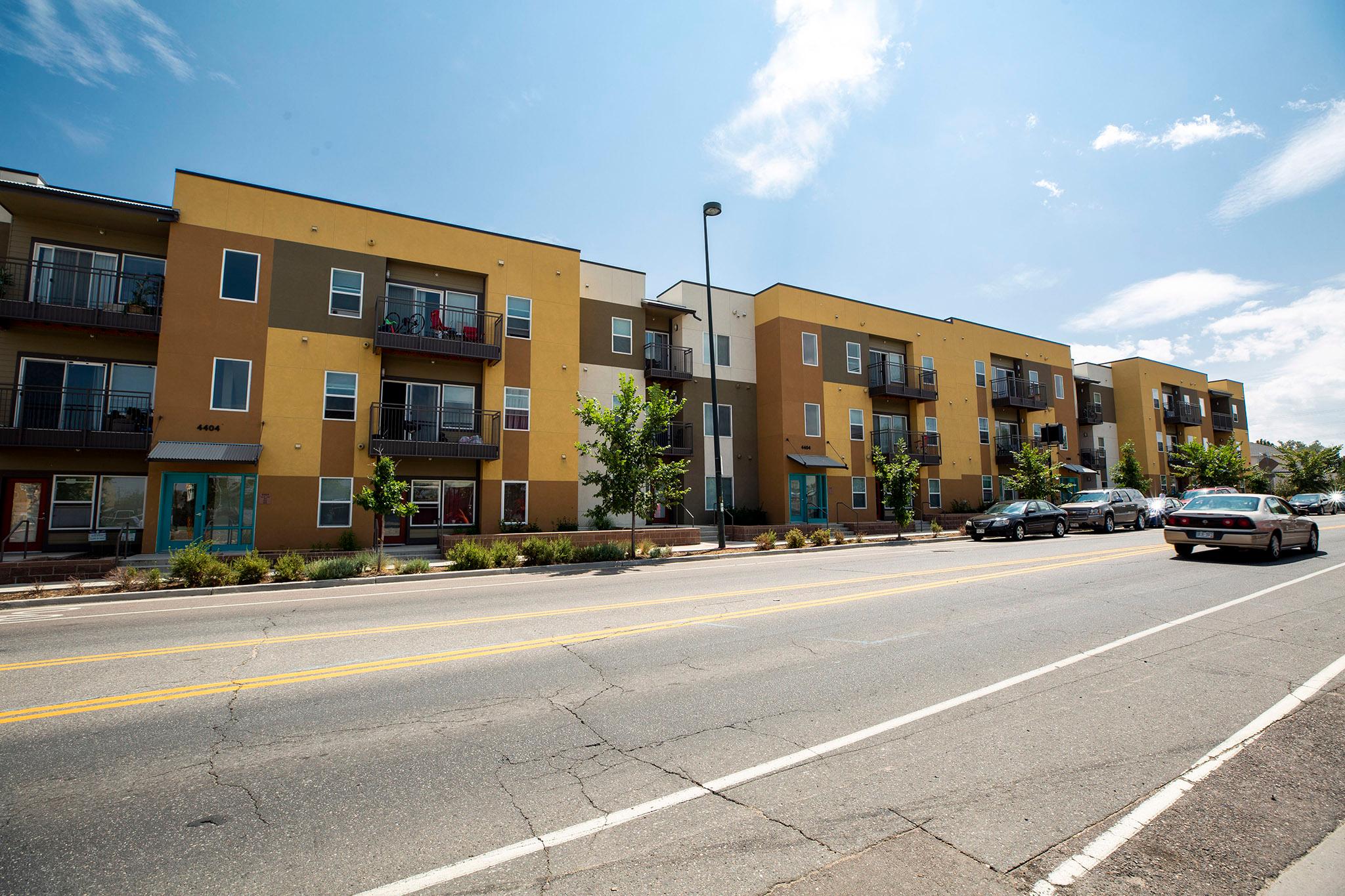Renters continue to face high prices in Denver, even as median rents slightly dropped from August to September.
That drop is cold comfort for people who can't afford the city.
With eviction filings returning to pre-pandemic levels and federal funding for rental-assistance programs drying up, the months ahead are filled with uncertainty for them.
Denver rents dropped by .2% from August to September, according to data from the online rental site Apartment List.
But zoom out from a month-to-month look at the data, and Denver rents are still 4% higher than they were at this time last year -- and even then, they have been trending up for years.
The median rent for a one-bedroom is currently $1,441,and a two-bedroom runs $1,782.
The landlord trade organization, the Colorado Apartment Association, looks at quarterly numbers for its analysis, and third-quarter numbers aren't in yet. But vacancy rates are still low, which will continue to cause rent to be high, said Andrew Hamrick, the group's senior vice president of government affairs.
"Average rent increased by $84 during the second quarter," Hamrick wrote Denverite. "If you look back over the previous 12 months, the annual rent growth has been 15.5%. Granted that may seem a bit tame when compared to the growth in home prices, but rental rates are always less volatile than purchase price growth.
"It will likely be about another month before we see third quarter numbers compiled, but I can't foresee anything that will significantly shift that low vacancy rate and corresponding upwards pressure on rent rates," he added.
Denver has not seen the same rate of annual growth as the rest of Colorado or the country.
"Denver's year-over-year rent growth lags the state average of 5.1%, as well as the national average of 7.5%," according to the Apartment List October Rent Report.
The median two-bedroom rent here is $1,782, while the national average is $1,360.
And there are certainly more affordable options in the state. In Colorado Springs, median two-bedroom rent is at $1,580; Fort Collins at $1,560 and even Phoenix at $1,480 all offer better deals than Denver.
The ten largest cities in the metro area have all seen an increase in rent.
Parker, where rent dropped by 2.6% last month, has the highest two-bedroom median rent at $2,183.
Westminster has seen the fastest year-to-year growth at 7.1%. Two bedrooms there are $2,119 a month, while one-bedrooms are $1,778.
The closest thing to a deal you'll find in the metro area is in Brighton, where two-bedroom median rent is $1,467, which is still up 4.3% over the past year.
Evictions are up after a drop during the pandemic.
In September, Denver had 771 eviction filings, just two fewer than there were in 2019, according to data from Denver County Court.
That's far higher than the 495 evictions in September 2020 and the 422 in September of last year.
This year has already seen more eviction filings than in all of 2020 or 2021, yet is still, generally, at lower rates than in 2019.
Those filings do not necessarily reflect the number of people who moved after being threatened with eviction but before a formal court process began.
Statewide eviction rates are back to pre-pandemic levels, as well, said Hamrick, looking at the past 20 years of Colorado filings.
Fewer than 15% of those filings lead to a sheriff-led moveout, he noted. "It's been a very stable return to normality and flat over the last four months," he said.
That normality might not last long, indicated Zach Neumann, the head of the COVID-19 Eviction Defense Project.
"I think what we find concerning is that we're heading into the final phase of the use of federal emergency rental assistance, and that raises concerns," he said.
When that money's gone, one of the main resources people facing eviction have used to stay in their homes when they can't pay rent will be gone.
"I think that's really going to create significant hardships," he said.
Some will self-evict and move out without a legal process. Others will take out loans, pay rent with credit cards or go to payday lenders for money. And others will be forcibly evicted.
"In all those scenarios, from first to last, you're talking about pretty significant hardship for families, borrowing money in a way that's really harmful long term to the family balance sheet," he said. "None of it really looks great. It's just a question of how bad is it."
Most of the rent-support funding has come from emergency federal money that will likely not be renewed and cannot be replaced at the state level without a public vote under the Taxpayer Bill of Rights, or TABOR, Neumann said.
"It's not something the state under TABOR could ever come close to matching," he said. "That doesn't mean the state shouldn't do anything, but it's certainly hard to continue to serve at the level we've seen."
Denver offers free legal representation for people facing eviction who are making 80% of the area median income, or currently $80,500 for a family of three. Voters will decide in November whether to expand that right to free representation to Denverites of all income levels through a new fee on landlords.
But without federal rental-assistance funding, those attorneys will have a tough time keeping people housed, Neumann said.
"I think the work of lawyers in this space when they are defending clients in non-payment cases gets dramatically harder when there isn't the opportunity to apply for and receive emergency rental assistance," he said. "The best defense to an eviction is being able to give your landlord a check from a rental assistance program."
Correction: We clarified that 80% of the area median income is $80,500.











